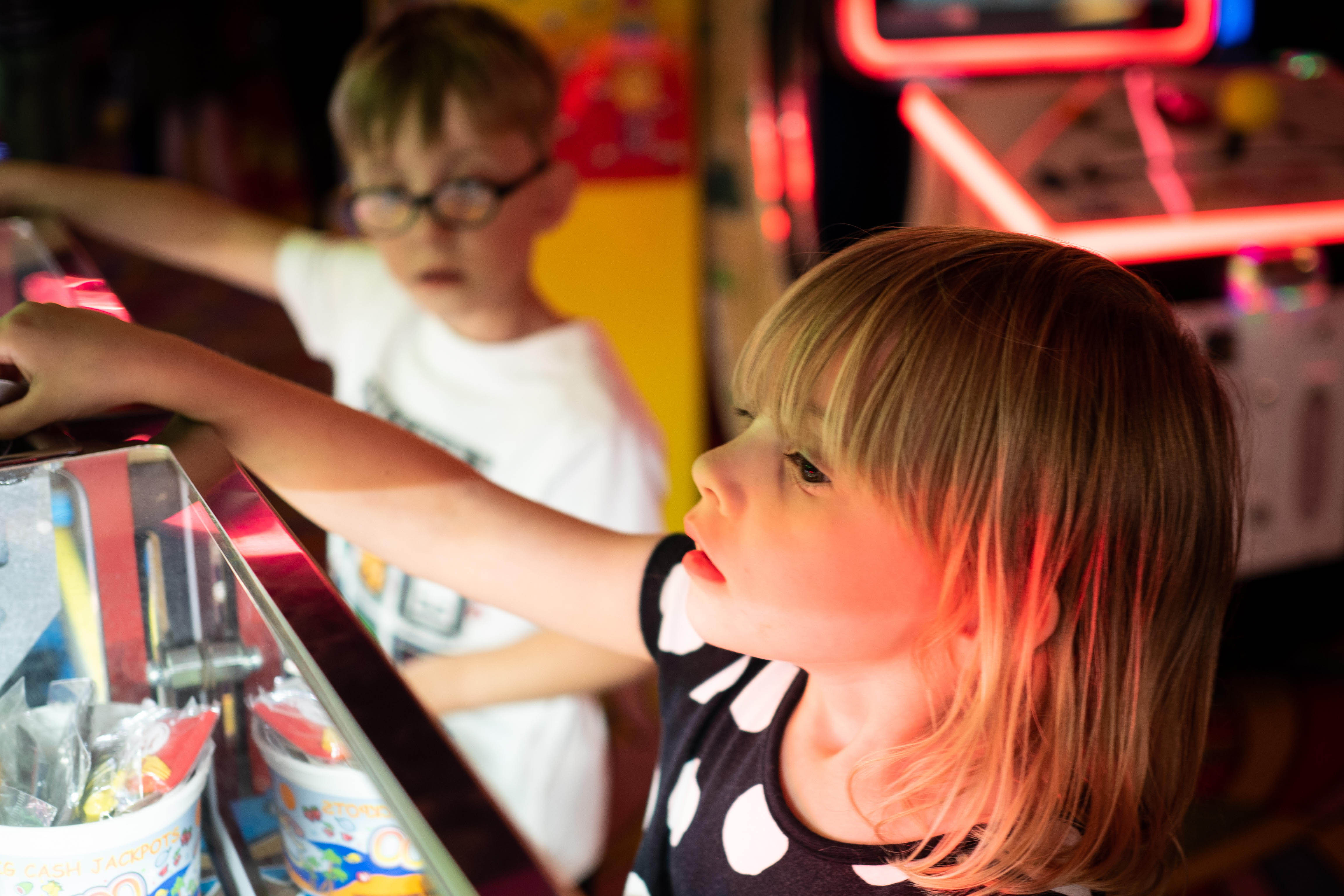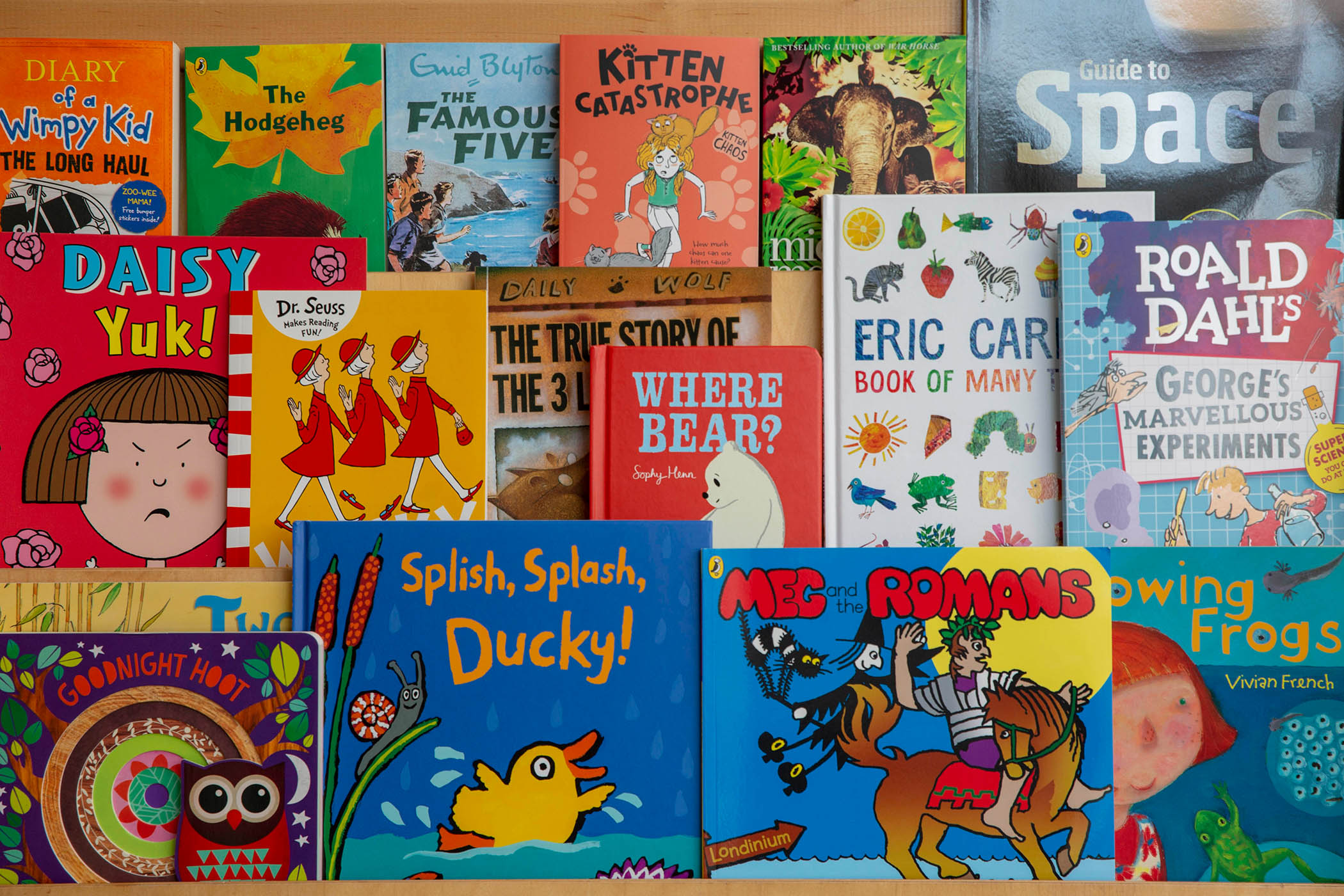Last week my sister Dearbhaile took her family to Spain and offered us her house in Worthing for the weekend. This was a foolhardy act of generosity on her part, but I’ve been living off those my entire life and wasn’t ready to stop now. So we made the trip to the coast, along with my wife’s parents, for four days of seaside delights.
Dearbhaile’s house is lovely, spacious and spotless when we arrive. At first, it does feel mildly perverse to be in their home without them, and there is an unavoidable twinge of melancholy when our kids realise they won’t be getting to see their cousins, Daniel and Ailbhe. Such sadness is fully extinguished, however, once they enter their playroom and begin manhandling every toy they can put their hands on.
Over the next few days we went to the seaside, taking in the coastal amusements of both Worthing and Brighton, and attempt to cram as much activity as we can into the time we have available. We catapult the kids on to as many rides and attractions as we can. My son goes on dozens, some too scary for the good of his little sister, and at least two nerve-shredders that even I might balk at. The first of these, in which 20 cabins are held aloft on pneumatic arms and swung, flung, pitched and rolled, for six straight minutes, would have removed my spine from my body as easily as pith from a black banana, but he withstands it stoically.
My daughter, by contrast, spends a lot of time standing up against various metal poles in order to discern whether she’s tall enough to enter some of the more pacy rides. I say “some” because the standards exercised by pier workers remain charmingly variable. Roughly half of the people taking tickets fail to notice her at all, while a solid majority of the rest can be talked round with little fuss. Only twice do we encounter killjoys intent on denying our daughter the chance to be flown around like a ragdoll and/or propelled into outer space.
What’s less variable is the reedy displeasure with which all such workers exhibit in their labours. The lady at the dodgems has the air of someone who’s just been told she has to pay the leccy bill herself. The guy taking our money for the Ferris wheel does so as if each rotation of its axis drives a stake through his nana’s heart. This, too, invokes nothing but joy in me, since surly staff-members are one of my most deeply imprinted memories of my own childhood holidays.
Everything about seaside attractions inspires a deep well of fondness within me. Their ineluctably Victorian trappings – curlicued signage, bawdy postcard imagery, pleasingly archaic language like “amusements”, “promenade”, “pavilion” and “pleasure palace” – render them frozen in several nested layers of recursive nostalgia. Here can be found all the cultural detritus of 10,000 yesteryears, accreted like geological strata. Yes, in 2025 the test-your-strength machines use contactless payments, and the loudspeakers now blare Taylor Swift as you try your best to hook a Labubu doll with a mechanical claw. But it gladdens my heart that all such activities are still done within arm’s reach of a Brookside-themed pinball machine, or an airbrushed portrait of Terminator II-era Arnold Schwarzenegger, all atop a creaking, whistling promenade built a few decades before photography was invented.
It is a shock, however, to see that here, at the Great British Seaside, the 2p still reigns supreme. There are, everywhere, whirring mechanisms converting crisp notes or even taps of your phone into coppers for every conceivable slot game and tipping-point machine. In my own childhood, the 2p piece was a foundational unit of currency, but I’d expected larger denominations to have taken its place by now. The Bank of England’s inflationary calculator disabuses me of this notion, telling me that, when I was my son’s age in 1992, 2p was equivalent to 4.44p in today’s money. This rather disappointing tally means we’re still some way off the era of the 5p, although it’s hard to imagine that day will ever come. The 2p is so perfectly designed for use as a fun token; of negligible value, but large and flat, granting an illusion of worth that its silver siblings can simply never match. My daughter covets them avidly, and cannot be persuaded that they are worth less than £1 coins, which would be much more convenient to use in the games that cost £3, and thus necessitate 150 separate actions to operate.
Sadly, my son appears uninterested in managing such denominations himself. Seven-year-old me would have begged and pleaded for a bulging tub of 2p coins that would have shamed Croesus himself (total worth: £1.24). He instead uses me as a money man to be directed from a haughty, cash-averse remove.
Related articles:
“Tap here,” he says, when we reach the dodgems. “Excuse me?” I ask, attempting to salvage some dignity from the 18th such exchange this afternoon. “Tap here, please,” he says, with a sardonic smile. I harrumph, tap, and lead him to the woman waiting to grant him entry, who wipes the smile off his face by barking the rules at him like he’s a convict entering gen-pop. “Ah,” I say to myself as he cowers before her, his manners entirely restored, “the magic of the seaside.”
Photograph by Alamy
Newsletters
Choose the newsletters you want to receive
View more
For information about how The Observer protects your data, read our Privacy Policy


